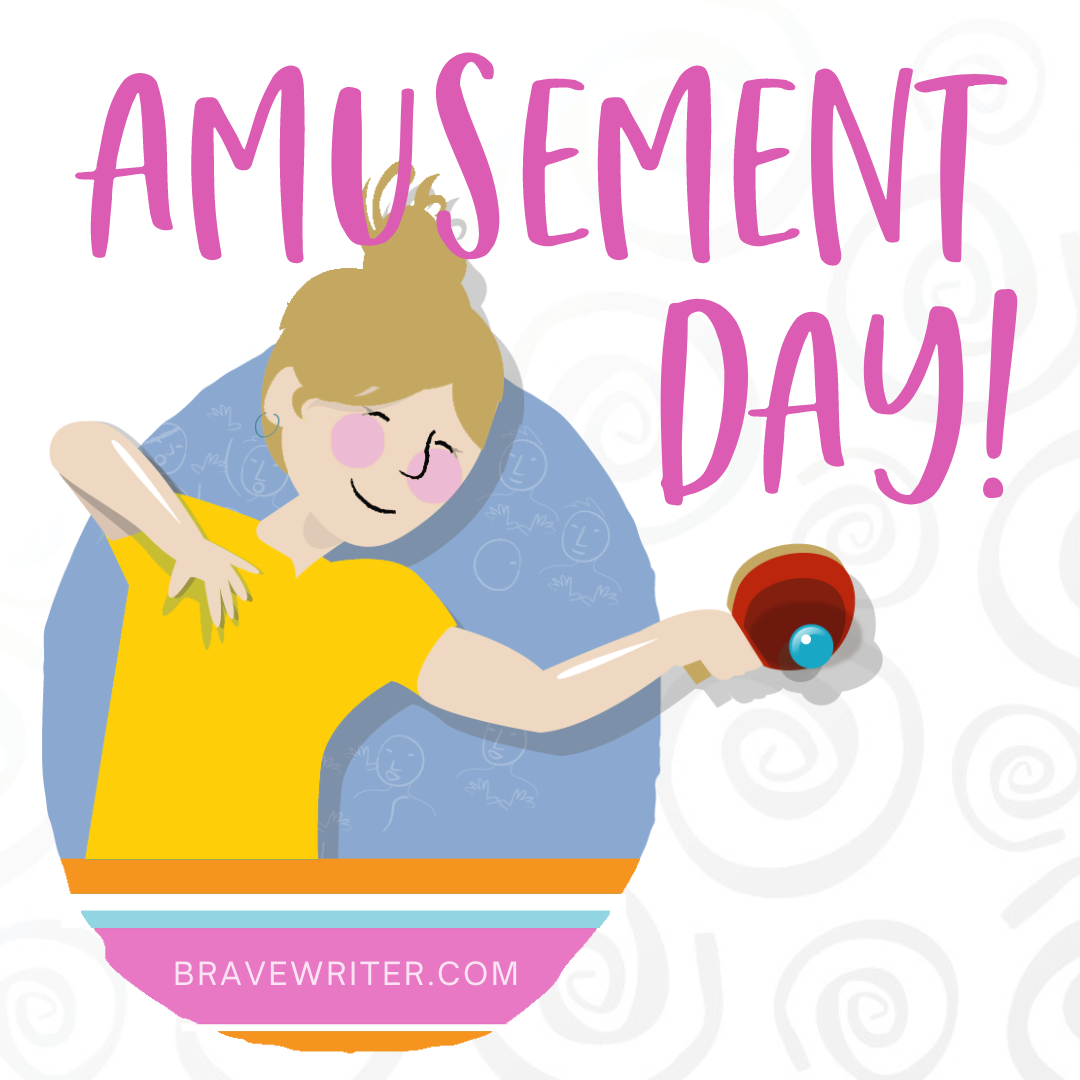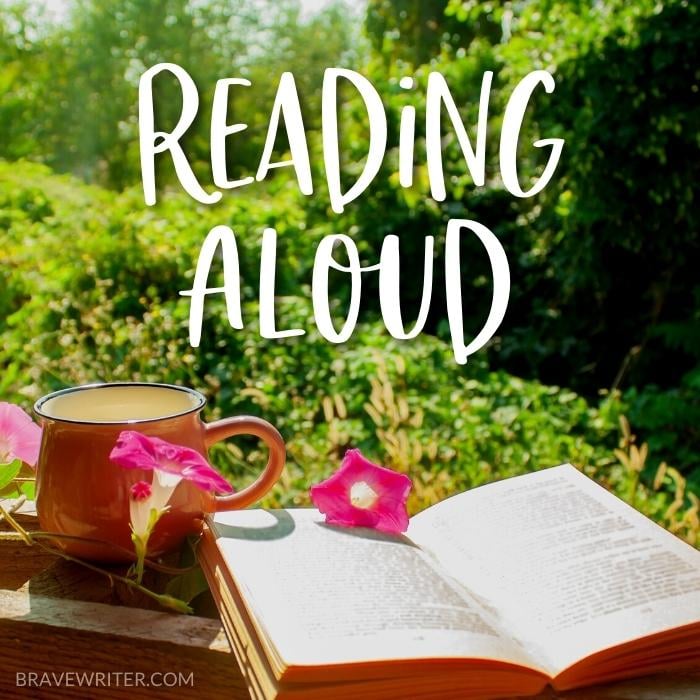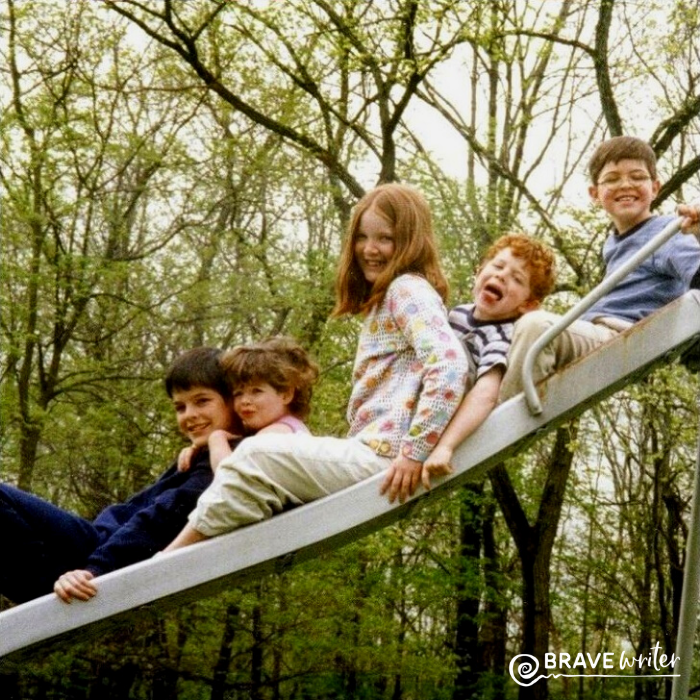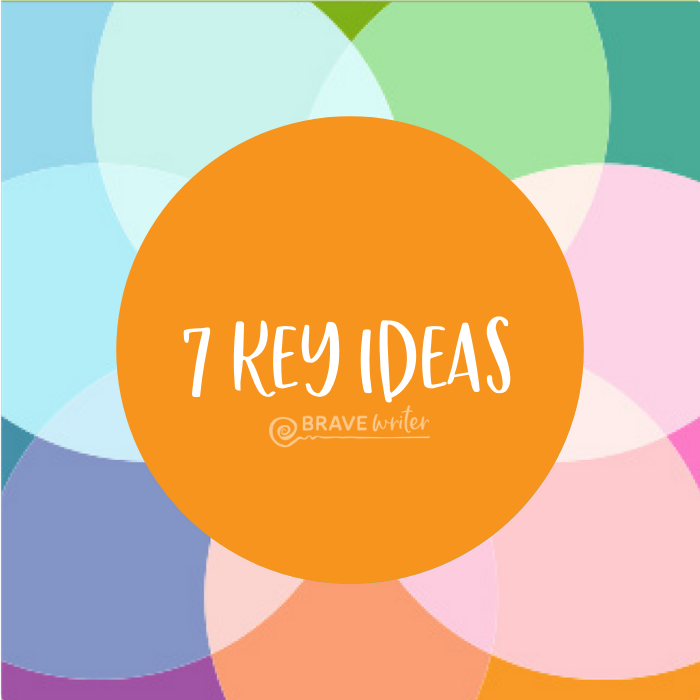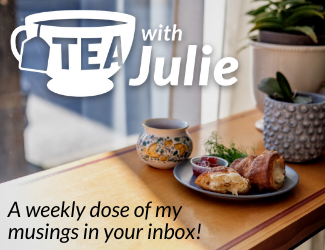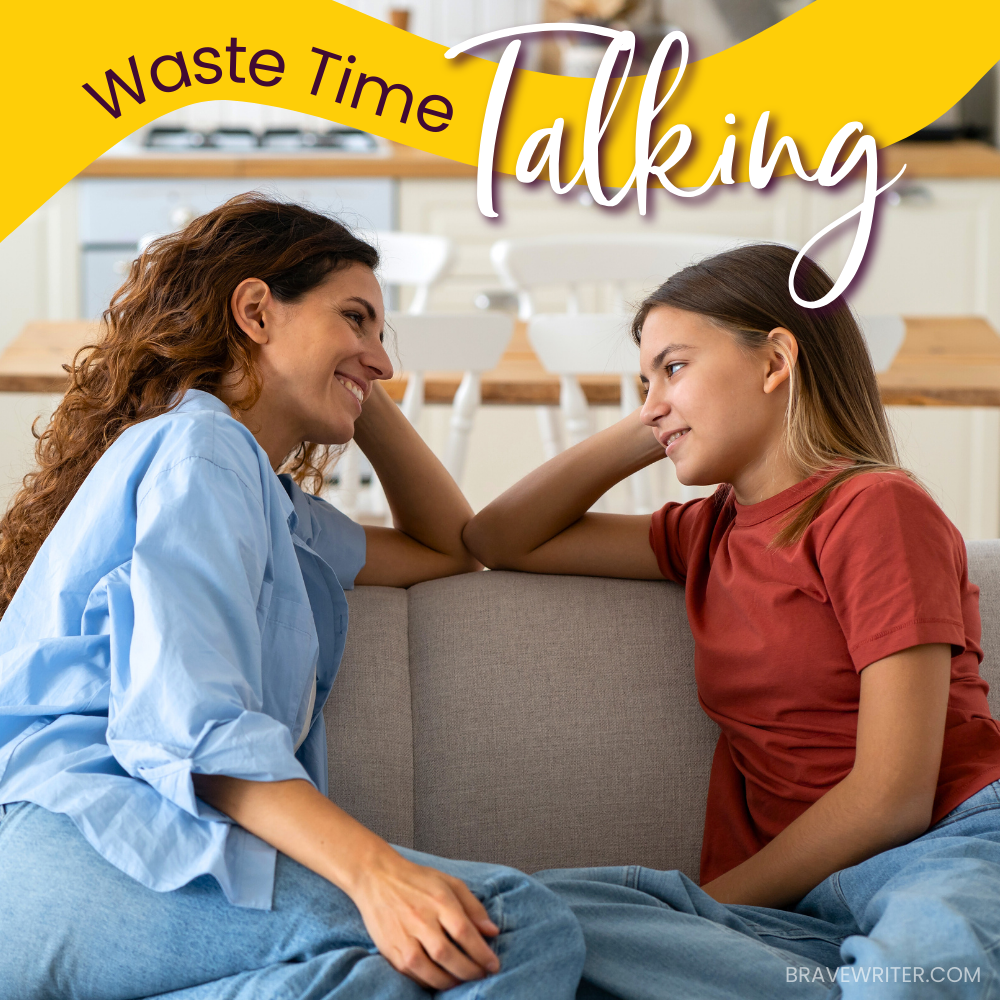
We’ve talked about how we should Waste Time Learning.
Now let’s talk about talking.
Did you know that the most effective tool for learning is big, juicy conversations with you?
More learning happens on the drive to the dentist’s and at the lunch table than anywhere else. You get to give your child the tutorial, one-on-one (sometimes six-on-one!) conversation that allows them to do some pretty huge things as far as learning is concerned.
Some examples:
- Narrate what they understand.
- Ask questions.
- Use new vocabulary.
- Make connections.
- Imagine scenarios.
- Apply what they understand to new contexts.
- Discover what an adult thinks about that topic.
- Face contradictions and controversies.
- Add depth and complexity to understanding.
All that and a bag of chips! (*chips not included)
This post is originally from Instagram and @juliebravewriter is my account there so come follow along for more conversations like this one!


